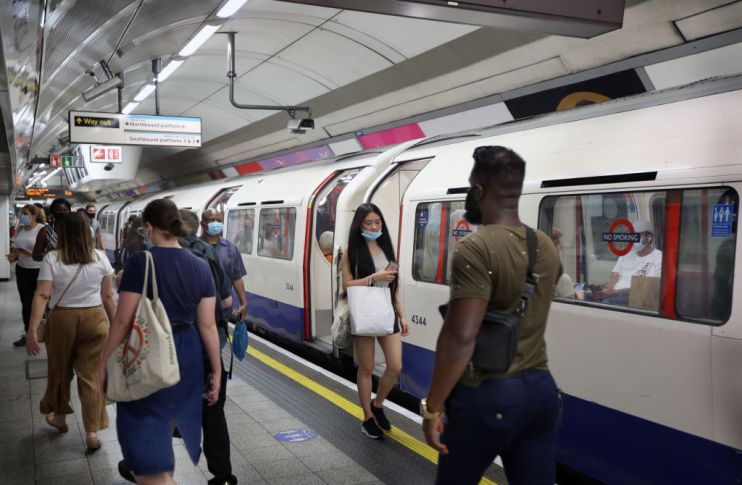TfL still facing £500m funding gap as network unveils slimmer budget
Transport for London (TfL) today revealed that it is facing a £500m funding gap for this financial year as it continues to try to broker a long-term financial package with the government.
In its revised budget, published this afternoon, the transport network revealed that it would need £1.9bn of funding for 2021/22, down from the £2.7bn it estimated back in March.
It has already secured £1.4bn of this due to a succession of emergency deals with the government.
But with the latest of these deals set to expire on 11 December, TfL will find itself out of cash unless a new agreement is reached.
Mayor Sadiq Khan, the chair of TfL, called on ministers to treat the operator like the country’s rail franchises and give it a long-term deal.
“This is vital not only for the good of London, but for the whole country”, he said.
As a result of the pandemic, the majority of TfL’s revenue, which comes through fares, all but totally dried up last year, leaving the network on the brink of bankruptcy.
Despite the loosening of restrictions, ridership across TfL’s services is still only at 54 per cent of pre-pandemic levels.
The revised budget assumes no reduction to Tube, bus, or rail services compared to January’s estimates, TfL said.
In a statement, the network said that government investment would allow it to accelerate “a number of shovel-ready projects”.
It flagged a number of different schemes, including completing Crossrail, the Northern Line extension to Battersea, and the redevelopment of Bank station, that depend on there being no funding shortfall.
Andy Byford, London’s transport commissioner, said: “We are committed to ensuring we continue to play our full part in London’s recovery from the pandemic.
“Our staff, supply chain and other partners have worked magnificently to keep London moving, but the pandemic has shown our financial model, with such a disproportionate reliance on fare revenue, to be not fit for purpose.
“The revised budget will ensure our services operate safely, while keeping vital capital investment going. This budget protects service levels, supports economic recovery and will help build a greener economy. TfL is meeting its part of the deal with Government to get back to financial self-sufficiency.”
Adam Tyndall, programme director for connectivity at London First, said: “It is good news that TfL hasn’t been required to make any further cuts to services. Ridership is slowly increasing and maintaining services is an important part of helping commuters feel safe and confident as they return.
“With the current funding deal expiring in December and the Spending Review due this year, it is time for TfL and the Government to work together to create a long-term financial solution that instills confidence in the network and enables investment in essential projects.”
